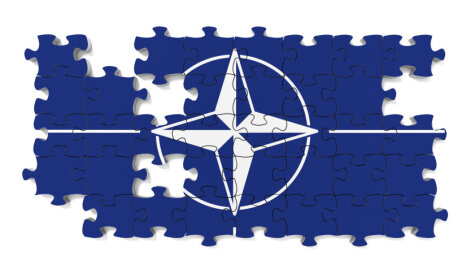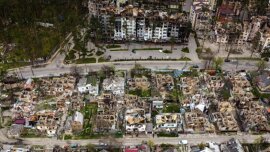ALEXANDER LEVCHENKO
Russian Deputy Foreign Minister Sergey Ryabkov, arriving in Geneva for talks with the American side, scandalously declared that "NATO should pack its stuff and return to 1997.”
Here, diplomatic vocabulary is very far away, like everything that the Russian Federation does in the international arena. It is rather similar to the actions of a raider with a criminal past who has not yet served time for his crimes, and, accordingly, the vocabulary of the Russian Foreign Ministry functionaries corresponds to the image of a “hero” who has not yet been legally punished for his atrocities.
So why did Vladimir Putin and the Kremlin propaganda suddenly start talking about 1997? Formally, Moscow recalled the "Founding Act on Russia-NATO Relations" signed on May 27, 1997, although this document does not say a word about the Alliance enlargement policy or any restrictions on the increase of its member countries. It only speaks in a framework about the need for cooperation between the official Moscow and Brussels, as well as the need to refrain from a hostile policy towards each other. But Russia certainly has its own intention of mentioning exactly 1997. Probably, it would be more logical for the Kremlin to refer to 1992, immediately after the collapse of the USSR, but then Ukraine was a nuclear state, including until 1996, and returning to this period is the recognition of the nuclear status of our state.
In 1999, the first NATO expansion among the former European socialist countries (Hungary, Poland, Czech Republic) already took place, and this, too, allegedly does not suit the Kremlin.
Therefore, Moscow's reference to 1997 is obvious - on the one hand, Ukraine should already be nuclear-free, and on the other hand, there has not yet been the first wave of NATO expansion after the collapse of the USSR. Cunningly thought up, but meanwhile: at that time the Crimea was part of Ukraine, as well as separate areas of Donetsk and Luhansk regions. South Ossetia remained part of Georgia. Moreover, on May 27, 1997, to which Moscow refers (the signing of the Russia-NATO agreement), the Agreement on the status and conditions of the presence of the Russian Black Sea Fleet on the territory of Ukraine has not yet been signed. This was done a day later, so it is understandable why the Kremlin is trying to refer to the whole of 1997.
So, it is foolish to start talking about the status quo of 1997 in European security policy until Russia returns the territories seized from Ukraine and Georgia. Moscow has at least some moral right to demand from Kyiv and Brussels that Ukraine not join NATO, only on condition that the temporarily occupied territories of Crimea and the Ukrainian part of Donbas are immediately returned to our state. However, is Russia ready for this?

























